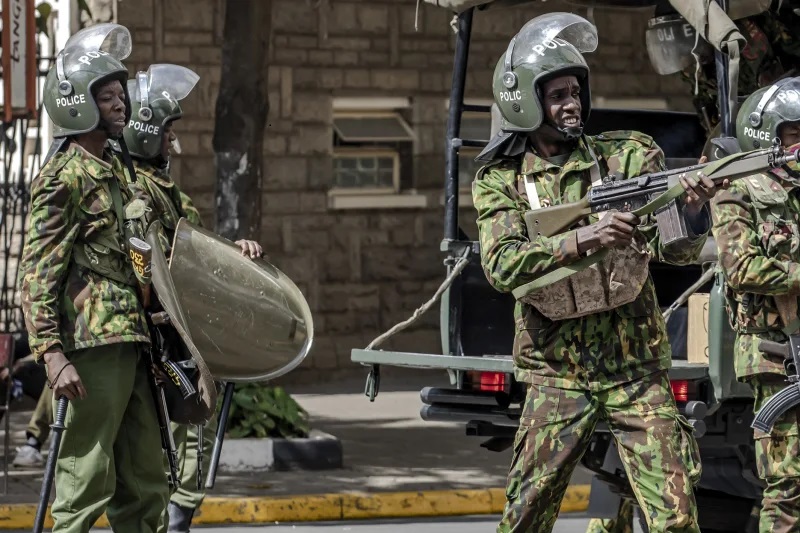Kenyan police clashed violently with protesters against the government in Nairobi, the country’s capital, on Tuesday during a new wave of rallies that the opposition leader had called for. In order to hand in a petition, Members of Parliament from the opposition group went to the Speaker’s office in the central business area. To disperse the crowd, the police used tear gas.
The vice president of the country, Rigathi Gachagua, said, “They informed us that we are aware of where to locate them. We are aware of it. We traveled there and spoke with the authorities.” Senator Edwin Sifuna of Nairobi County called his colleagues “cowards.” Protesters, who had arrived early in the morning to erect barricades on the city’s main highways, hurled stones at the police. In response, the police used tear gas to disperse the crowd. Both a bus and a delivery truck were destroyed in the fire.
Kisumu County, which is considered to be a stronghold for the opposition, came to a complete halt as a result of clashes between police and demonstrators. The opposition is demanding revisions to the electoral commission that handled the election that President William Ruto won one year ago, as well as the implementation of measures to reduce the cost of living.
Related Posts
In a statement, Kithure Kindiki, the minister of the interior, condemned acts of violence and looting committed by “hoards of criminals posing as political protesters.” He also said that police enforcement “has been instructed to enforce the law firmly and decisively.” According to the minister, a grand total of 46 individuals were taken into custody on Tuesday.
The opposition leader and former prime minister of Kenya, Raila Odinga, disagreed with the government’s assertion that the demonstrations on Tuesday were illegal, and he invited a sizable number of his supporters to take part. In a statement, Azimio criticized the enormous deployment of police “to prevent us from continuing our demonstrations” and accused the government of deploying “hooligans” to incite “chaos” and tarnish their cause. He made these accusations in response to the deployment of police officers “to prevent us from continuing our demonstrations.”
After taking the day off to plan their next move, the opposition will pick up where they left off with their demonstrations on Thursday, according to Martha Karua, who was Raila Odinga’s running partner in the presidential election held the year before. According to Ms. Karua, Mr. Odinga and the former Vice President Kalonzo Musyoka had their protection removed.
The head of the police department had issued an order banning the demonstrations, citing previous unrest that had resulted in the theft of businesses and the robbery of Kenyans. Mr. Odinga has stated that the demonstrations will be nonviolent. On Monday, Mr. Ruto issued a warning to those who support the opposition to refrain from harming private property. He strongly suggested that Mr. Odinga think about the potential of picking up the negotiations again.
In order to clear the way for the talks that Mr. Ruto had offered, Mr. Odinga had put off the protests that were planned to take place during Ramadan. Both the ruling party and the opposition put forth candidates for politicians to take part in the debates; however, the opposition did not accept all of the names that the ruling party put forth. Since then, the talks have been unsuccessful, and the opposition has said that it will continue its demonstrations in the streets.
William Ruto has been the target of criticism ever since he was elected, positioning himself as the herald of the “resourceful” of the common people. In particular, this criticism has arisen as a result of his decision to eliminate costly subsidies on fuel and corn flour, the prices of which have steadily increased.
Kenya, the economic powerhouse of East Africa, is currently grappling with soaring inflation, which hit 9.2% year over year in the month of February. Just the cost of food alone saw a 13.3% increase. In addition to these problems, sections of the country are experiencing a drought of record proportions. The Kenyan shilling has also been depreciating recently.

